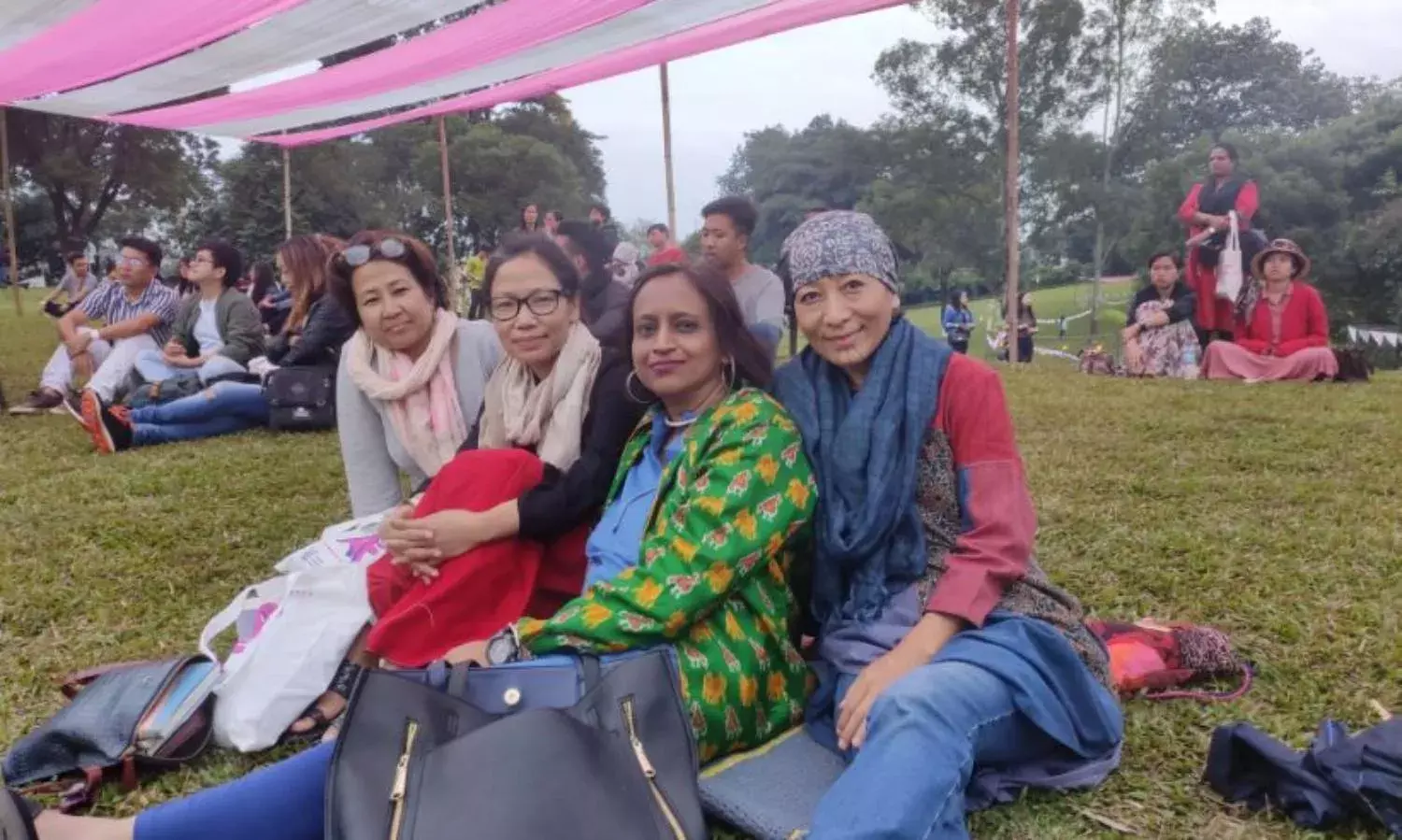‘We Have to Tell Our Own Stories’
Storytelling in the North East of India;

ITANAGAR: Poetry, says Streamlet Dhkar, has become a weapon for women in recent years that have witnessed a rise in crimes against women across the northeast of India.
Dhkar, a Khasi poet and professor at the North Eastern Hill University in Meghalaya, was speaking at a panel discussion on ‘Literature through the lens of indigenous language’ at the second edition of the Arunachal Literature & Art Festival that concluded on Sunday.
The festival focussed not just on providing a platform for artists to showcase their work and the usual poetry reading sessions, but also initiated dialogue on preserving and promoting the indigenous folklore and art traditional to the region that has been eroding over the last few decades.
At the event were a number of women writers from the region who had their regional book releases. As the day wound up and evening set in, we engaged in conversation.
Thingnam Anjulika Samom, an independent journalist from Imphal, Manipur, who writes primarily on gender issues, conflict, and development, said her motives for writing are two-fold, depending on the kind of writing she is practising at a given moment.
As a journalist, she wants to tell stories (even if they are those of others) in hopes of bringing changes.
As for her poetry, she jokes that she does it “for fun”.
But quickly adds that it’s the angst that comes from being a woman and existential crisis that drives her to write poems.
“Sometimes when I am cooking and I get annoyed with something, I quickly post a short poem on Facebook,” she says.
Is it important that women must write, I ask.
“Yes,” she says, but gender-sensitive writing doesn’t have to be confined to writers who are women.
“Everyone must write about everything but that’s not the reality right now,” Samom says.
In recent years, publishing houses like Zubaan have carried collections of stories and essays by women from the Northeast.
Samom is the editor of Crafting the Word: Writings from Manipur.
Another editor of the same series, who collated writings from Nagaland in a book entitled The Many That I Am: Writings from Nagaland, Anungla Zoe Longkumer, says that for years women everywhere have not had a voice although they have played a vital role in preserving culture.
“In our tribal communities where storytelling is an oral tradition, it is the elder women who retold those folktales,” she says, and rues the fact that “so much has already been lost”.
Longkumer believes it is important that women write “because we’ve had to fight for so much for so long”, and that being published in a sense equates to the words being carved in stone.
However, she adds that “hopefully a voice will be a voice regardless of the writer’s gender”.
Another writer, Teresa Rehman, whose book The Mothers of Manipur is published by Zubaan, was also at the festival for the Arunachal-launch of her latest book Bulletproof: A Journalist’s Notebook on Reporting Conflict.
She recounts how a few years ago she met the head of a collective of women writers in Assam who told her that finding women writers was a difficult task.
“There were families of some women who did not even know that they had someone in their homes who wrote,” Rehman says.
The Tezpur-based journalist and writer says that having more writing by women come to print is important since it brings different perspectives.
“I began to understand certain things a little more after becoming a mother,” she says, but adds that her husband is a better parent than she is.
Rehman also says that women may be the better storytellers, and that it is encouraging to see more women get published, especially those from the region.
The associate editor of the Arunachal Times, Tongam Rina, feels that women must write because “we have to tell our own stories”.
Citing Arunachal Pradesh’s Mamang Dai and Nagaland’s Easterine Kire, Rina says there is consistent creation by women writers from the region, who are publishing books on a regular basis.
“There are very few female writers but they are exceptional and gaining visibility,” she says.
As the space for different perspectives and voices grows in the region, Samom says: We write as much as we can.
Cover photo: Thingnam Anjulika Samom, Tongam Rina, Teresa Rehman, and Anungla Zoe Longkumer

